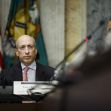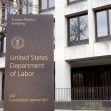A Labor Department rule keeps many retirement plans from including socially-focused funds. Money managers want to change that.
The Trump-era rule, which was announced in October, limited what can and can’t be offered as 401(k) funds through one’s company. One of the sequellae of this rule is that funds without financial goals can’t be used as default investments for 401(k) options. The rule requires that funds only consider risk and return, not social or environmental issues.
In the background section of the Rule itself, there is a notation saying courts have found that the exclusive purpose of one of the ERISA sections that governs 401(k) funds is to require fiduciaries to act with “complete and undivided loyalty to the beneficiaries.” Their decisions must “be made with an eye single to the interests of the participants and beneficiaries.” In 2014, the Supreme Court unanimously held that these interests are “financial” rather than “nonpecuniary.” Further, Federal appellate courts have called ERISA’s fiduciary duties “the highest known to the law.”
Repeatedly, in diverse sub-regulatory guidance, the Department has reiterated that when making decisions on investments, plan fiduciaries must focus ONLY on the plan’s financial returns, and the plan beneficiaries’ and participants’ interests must be the primary concern.
This poses a challenge for environmental, social, and governance (ESG) funds; they’ll need to show that these strategies can boost a portfolio’s financial returns. ESG funds are becoming more popular with asset managers.
Retirees, pensions, and managers, through lobbyists, began calling the Biden transition team shortly after the rule was announced. Some lobbyists tried to get the Biden administration to agree not to enforce the rule, but rather, to review it.
The rule was intended to be rolled out in January. The Biden administration flagged it for review that month, instead.
Now there’s a debate about whether easier access to ESG funds helps or hurts small investors. Arguments from asset managers claim that losses are reduced and returns strengthened when funds are attentive to workplace diversity or climate risks.
Is Wall Street overreaching into political issues? Some investors are worried and wonder if ESG funds can deliver on promised returns.
According to Trump’s Labor Department, there is no reason to assume ESG funds can deliver better returns, since the definition of ESG remains unclear, and ESG funds are not required to seek higher returns.
The rule requires that 401(k) plan administrators cannot trade returns for non-financial benefits. Under the rule, the only circumstances where non-financial benefits can be considered is when comparing investment options and whether they have equal financial merits. Of the 86 asset managers who sent letters during the 30-day comment period after the rule was announced, only one was in favor of the rule.
BlackRock Inc., the largest money manager in the world, said in its comment to the department, “The proposal creates an overly prescriptive and burdensome standard.”
Mark Iwry, a senior official in the U.S.Treasury Department during former Democratic administrations, said, “It doesn’t flatly rule out all plan investment in ESG funds.”
Though ESG funds are a very minor part of 401(k)s, they garnered $51.1 billion of new money in 2020. That was more than double from the prior year. 2.6% of U.S. corporate plans offered ESG funds in 2019 employee-benefit plans.
Eric Pan, chief executive of the main lobby group for the asset-management industry, Investment Company Institute, said, “We don’t want to have people being deterred from looking at investment options where clearly there is a lot of investor demand.”
After the initial rule came out, Wall Street complained, and the rule was modified. The language now includes several restrictions that no longer explicitly apply to ESG funds. A section was deleted that required “investment professionals” to say ESG factors were financially material before plans could include them.
According to Jose Minaya, chief executive of Nuveen, Teachers Insurance and Annuity Association of America’s $1.2 trillion investment-management branch, the debate over the rule “will push the industry to get more sophisticated in terms of how it looks at ESG factors.”
There is concern that the rule penalizes efforts to push companies on carbon emissions or other ESG issues that may affect returns. Even index funds that account for ESG factors could be viewed as chasing after non-financial goals, and find themselves kept out of 401(k)s.
Mr. Minaya hopes the next version of the rule will be clearer on how to account for ESG in investments in 401(k) plans. Other asset managers want more specific language about when 401(k)s can include ESG funds.






